Click here to view Green Audit Report 2019-2020
Green Projects @ YIMS
The environmental quality of the campus of Yuvakshetra Institute in Palakkad, Kerala, is unique in that the natural environment is maintained well when compared to many other colleges in the region. The Principal, members of teaching staff, students, and the Parent Teacher Association, as well as the management are very much enthusiastic in conserving the nature, in moderating consumption, and in appropriately reusing and recycling materials wherever possible.
1. The college has from its beginning been very frugal in using electricity, and all the natural resources. The per capita values are very moderate.
2. The same concept of ‘conservation of resources’ has been followed in the case of water use as well. Available ground water sources are exploited at a sustainable level and purchase of water from municipal source is not resorted to. Rainwater harvesting is done enthusiastically. Opportunities to enhance these positives do exist and is currently practiced and strongly deployed.
3. The 2018 ‘Great Floods of Kerala, and landslides, and excess rains of 2019 did not inconvenience the campus; instead, it could help those who were affected in multifarious ways utilizing the youth power in the campus and available resources of YIMS.
4. All major environment and conservation-oriented national and UN days are observed with programs and interaction with experts from outside the locality.
Right from the inception of YIMS, the students are encouraged to identify themselves as protectors of environment, through the following activities:
POLICY ON ENVIRONMENT AND SUSTAINABILITY
The college is committed to implementing, maintaining and continually improving environmental management processes to reduce its environmental footprint. Ecological consciousness rising from notions of sustainability is embedded in the basic ethical outlook of the institution.
1. The college is obliged to protect the environment through the prevention of pollution and waste, and through the sustainable development, and maintenance and improvement of the natural environment.
2. The college should formulate its policies complying with all relevant environmental legislation, standards, agreements, policies and procedures demarcated by the central, state governments.
3. The college is committed to maximise sustainable resource use and minimize the use of hazardous substances.
4. Special measures should be taken to protect and improve biodiversity of the campus.
Practical steps should be shown in developing and implementing research and teaching initiatives related to sustainability.
5. The college should design programmes to foster the quality of the environment and protection of the biodiversity throughout the region.
6. Objectives and targets should be established for improving our environmental performance in the areas of: energy consumption, greenhouse gas emissions, potable water consumption, waste to landfill, sustainable transport, and biodiversity.
7. The campus has to be made plastic free to a possible extent. Abiding by the principle of green protocol, the institution insists on the use of cloth items replacing plastic made ones.
8. Reservoirs for rain water harvesting should be constructed in the campus.
9. The college should take steps to harness solar power.
10. The college should attempt to become a paper free one by promoting electronic platforms for academic and administrative purposes.
POLICY ON GREEN AUDIT
1. The green audit policy in the campus aims to analyze environmentalpractices within and outside of the concerned place, which will have an impact on the eco-friendly atmosphere.2. The main objective of the green audit is to promote the Environment Management and Conservation in the College Campus.
3. The purpose of the audit is to identify, quantify, describe and prioritize framework of Environment Sustainability in compliance with the applicable
regulations, policies and standards.
4. The green audit is conducted every five years ensuring the practices followed in the campus are in accordance with the Green Audit Policy.
1. Green Fan Nature Club and Club Green Guardians
A club of Nature’s Fans among the students organises a number of green projects and awareness programmes in the campus as well as in outreach work, since 2015. Major activities are planting of useful and value-adding trees, organic farming, farm visits, bio diversity training programmes, visit to Silent Valley National Park, Awareness of students about nature and promoting the Institute green protocol. Since 2018, for more in-depth interaction with environmentalists and planners, the Club Green Guardians is established in association with the Nature’s Green Guardians Foundation. Training programmes and greening programmes are strengthened under this student nature club.
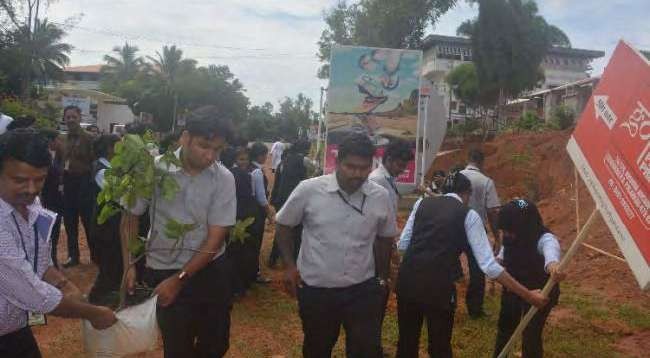
2. Ente Maram (My Tree) Project
The students of UG and PG programs are entrusted with the task of protection of trees and plants in the YIMS campus, starting from the date of admission till they pass out. Under this program, the students engage in watering and manuring the trees and plants as well. As providing tree guards during the early stage of nurturing trees.
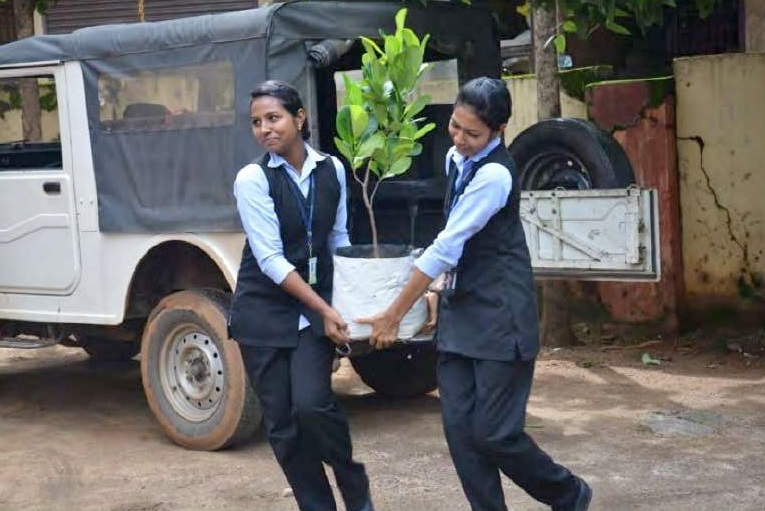
3. Rain Water harvesting
The Institute has cared for having extensive Rain Water Harvesting system in the campus. The target is collection of water around 1 million Litre. The students are involved in the collection and management. There is an injection re-charging system that will help in maintaining the ground water table high.
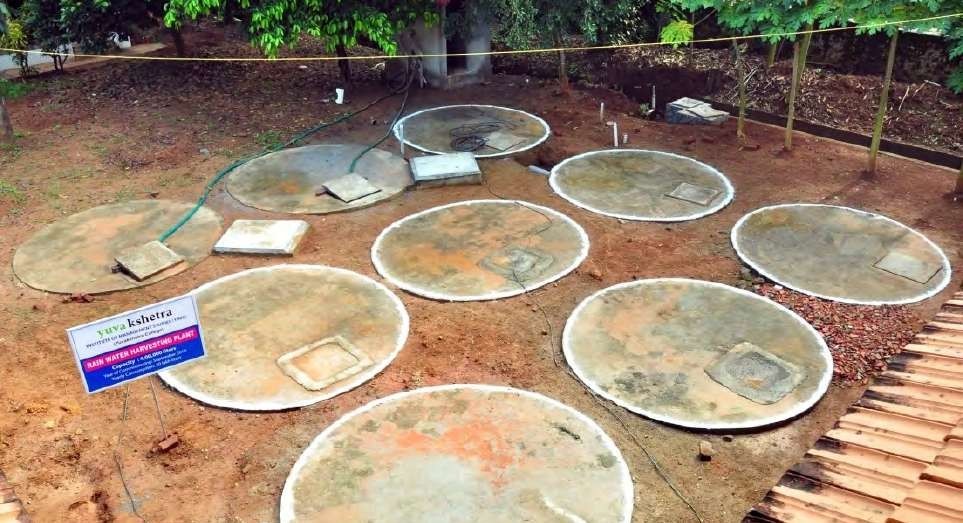
4. Organic Farming
In the campus 4 acres of land is exclusively for Organic Farming. A variety of vegetables, fruits, and even green grass for the cattle are cultivated here. There is a dairy farm which has the famous breed of cows called “Vechur Cow”. Students are encouraged to associate with these activities and care for the environment in totality. In 2019-‘20 Green Fan Nature Club took the lead in conducting the ‘Grow bag Organic Farm’. The major crops cultivated are Ginger, Chilly, Ladies Finger (Okra), Cabbage, Cauliflower, and Beans. ‘Kara Nel krishi’ or ‘paddy on land’ is another star product.

5. Waste Management
YIMS campus is very particular in segregating all the waste materials in four categories and collecting them in separate bins for proper disposal:
i. Food waste
ii. Plastic
iii. Glass materials
iv. Hazardous
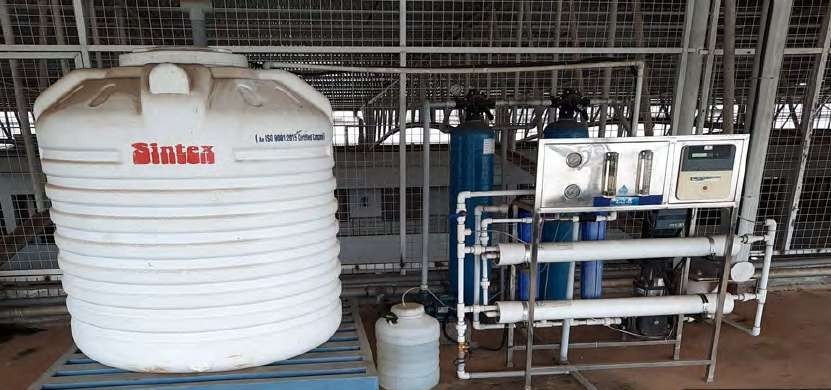
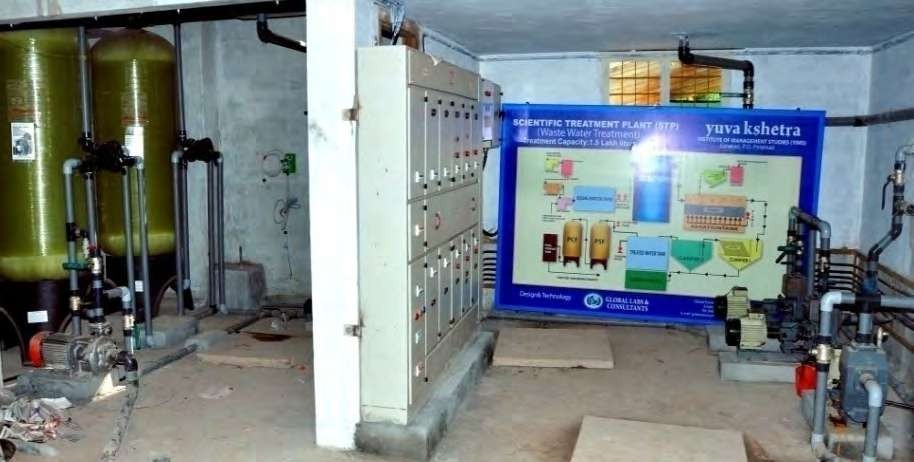
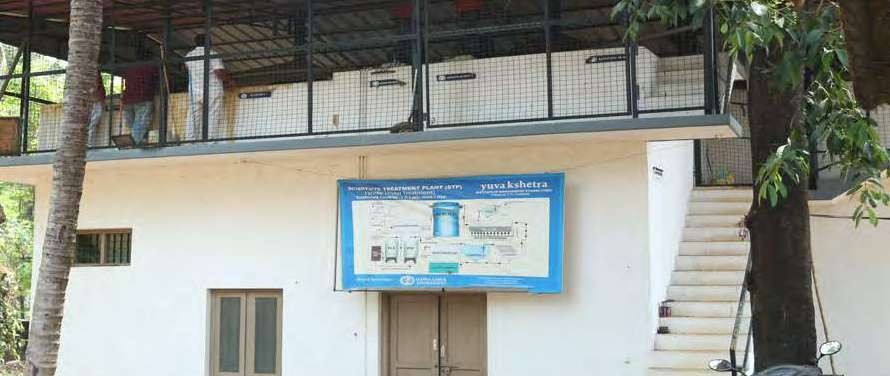
6. Biogas Plants
Food waste, cow dung, and other recyclable waste materials are converted to energy (methane gas) in two Biogas plants (3 m3 & 15 m3) and the gas is used for
cooking (partially). Students learn such practices for transferring to their families and others [See also Audit on Renewable energy use].
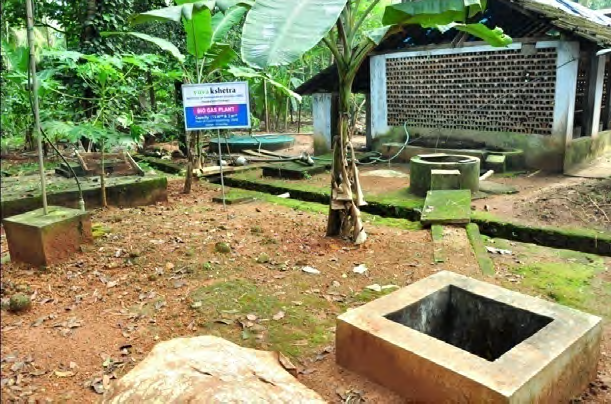
7. Energy Conservation Programmes
Students familiarise themselves with these technologies, which are the stepping stones to becoming an eco-positive campus:
i. Solar Power and Solar Water heater : Solar Light Energy for electricity, and solar heat for water heating is in YIMS campus.
ii. Steam Cooking: Hostel uses this technology for speedy bulk cooking and for saving heavily on fuel cost.
iii. Smokeless Oven: High-efficient and pollution free firewood chulahs are used for saving on firewood and making the kitchen, smoke and dirt free.
iv. LED Lights: College is extensively using LED lighting devices to save energy and money, as well as for eliminating the ‘end of life’ pollution.
v. Energy Auditing: Auditing of energy for making energy services of least cost, carbon free, and resource conserving is a model worth emulating by
other colleges.

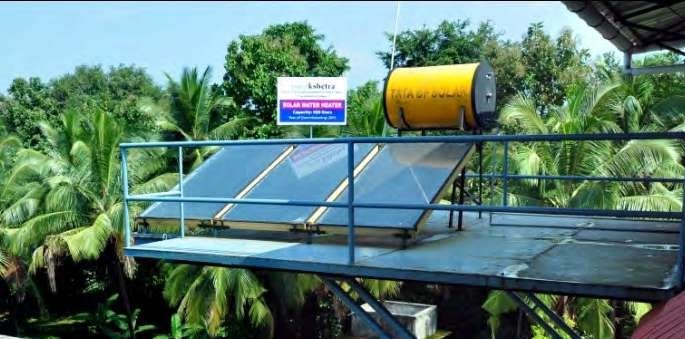
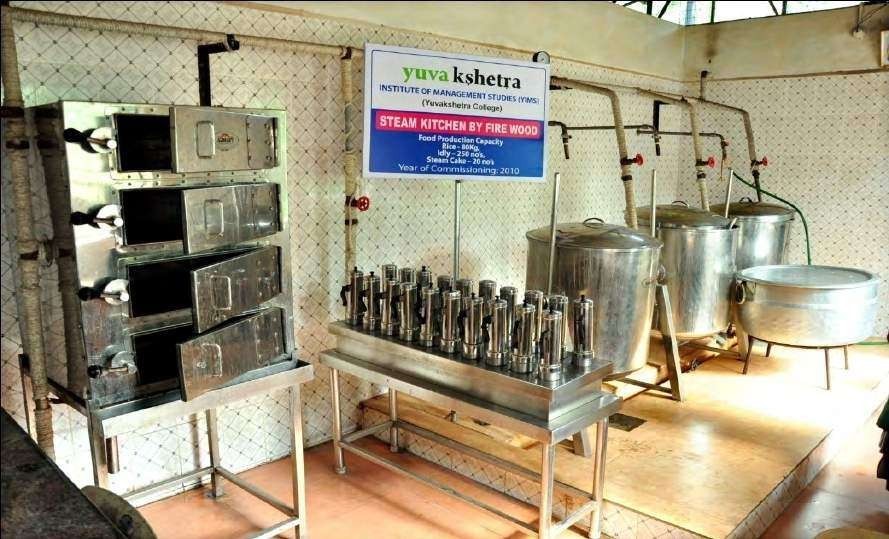
8. Scientific Water Treatment Plant (SWTP)
Water Treatment Plant of YIMS treats grey and waste water in the Campus with a capacity of 1 lakh litre per day to save large volume of water being discarded. Treated water is used for watering the Garden and for Organic Farming.

9. Beautification of Campus Corridor
In front of the College Campus, the avenue trees on both sides are planted, maintained and nurtured by the students and staff.
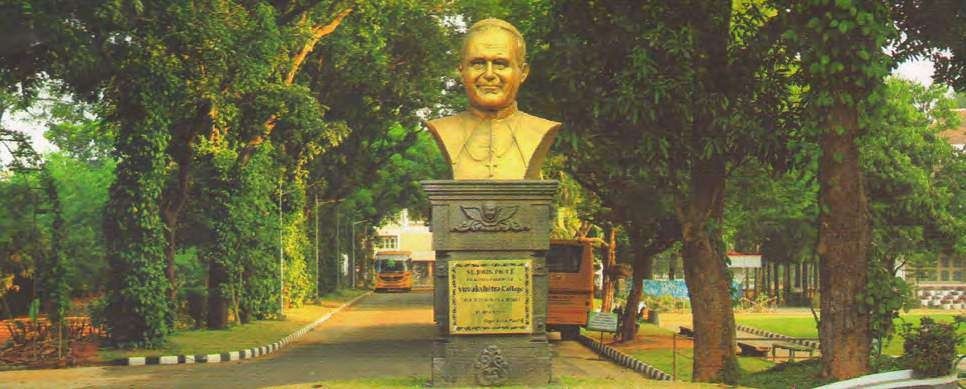
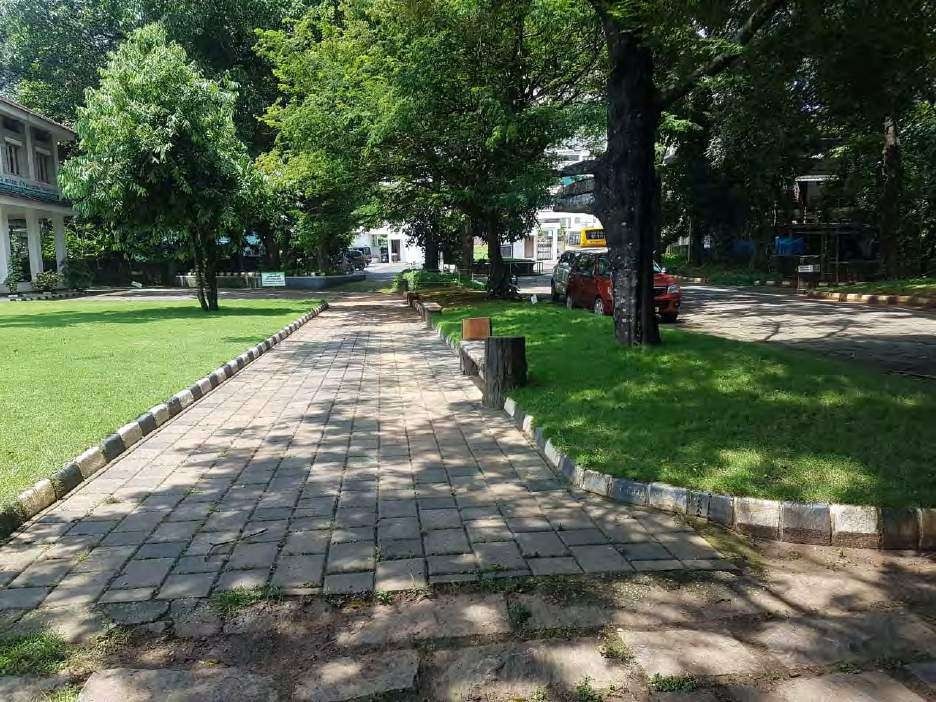
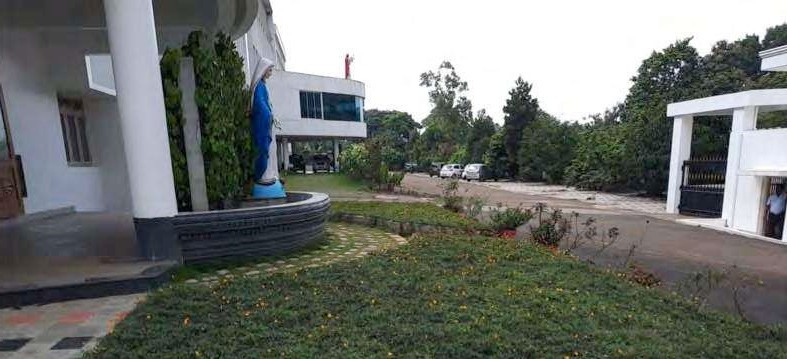
10. Bamboo Garden
The rare and lovely Bamboo (Thyrostatic Oliveri/Korna) garden in the Campus is a unique attraction. It was planted in 1942 by Mr. Abdul Mouji, who brought the saplings from Myanmar, now maintained with the help of staff and students.
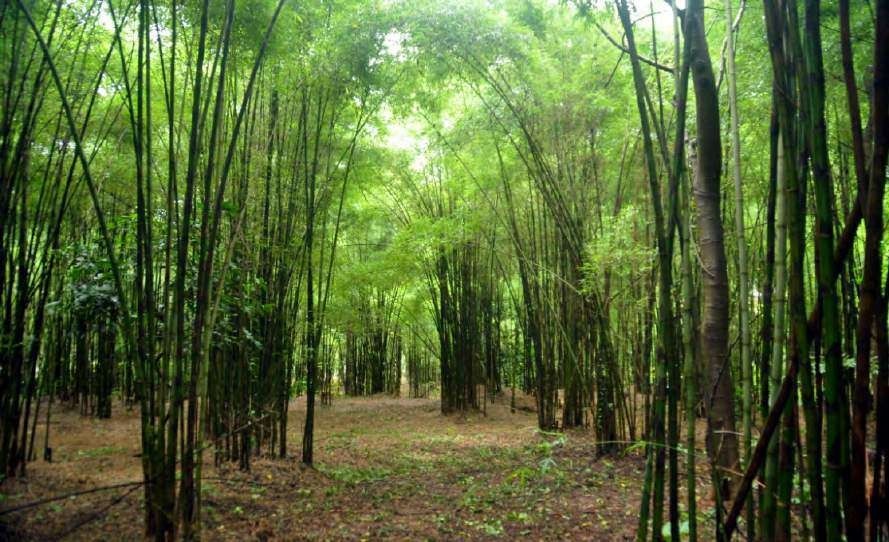
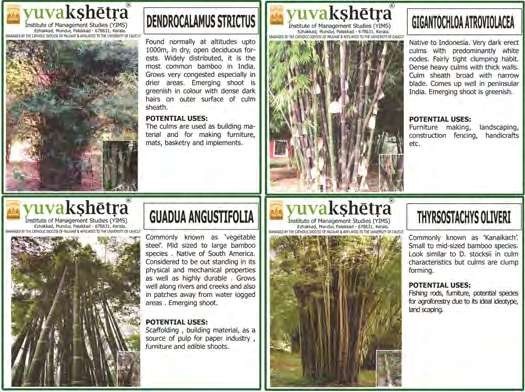
Green Protocol
- Bring food only as per requirement to avoid wastage
- Use ink pens to prevent accumulation of plastic waste through the discarded ball point pens
- Food and drinking water should be brought in stainless steel utensils and disposable materials should be avoided
- Use waste bins provided in the campuses and segregate waste into bio- degradable, non-bio degradable and hazardous categories
- Avoid paper and plastic cups and plates in public functions for serving food. Instead, use utensils that can be washed and reused
- All departments to deposit waste paper only in the common Materials Recovery Facility in the campus
- Store electrical and electronic waste and hand it over periodically to the concerned person to ensure its proper recycling
- Avoid flowers draped in plastic covers and flex items during public functions in campuses and welcome dignitaries with a single flower or a book
- Set up compost facility to turn bio degradable waste into compost. This should be used for cultivating organic vegetables in grow bags and pots
- Constitute Green Protocol teams for monthly monitoring of activities. Class leaders and Teachers be trained by Suchitwa Mission on ways of Greening

